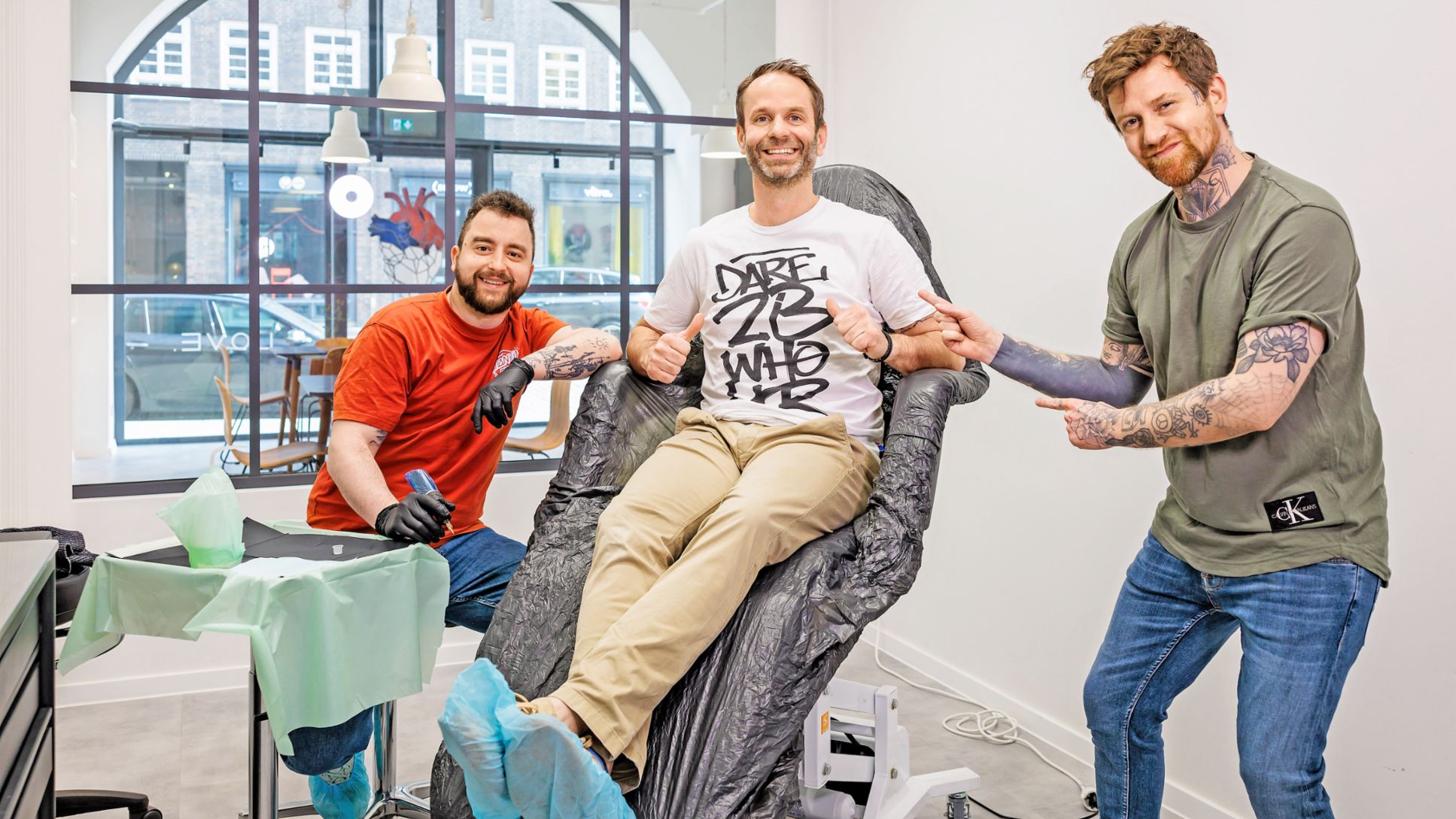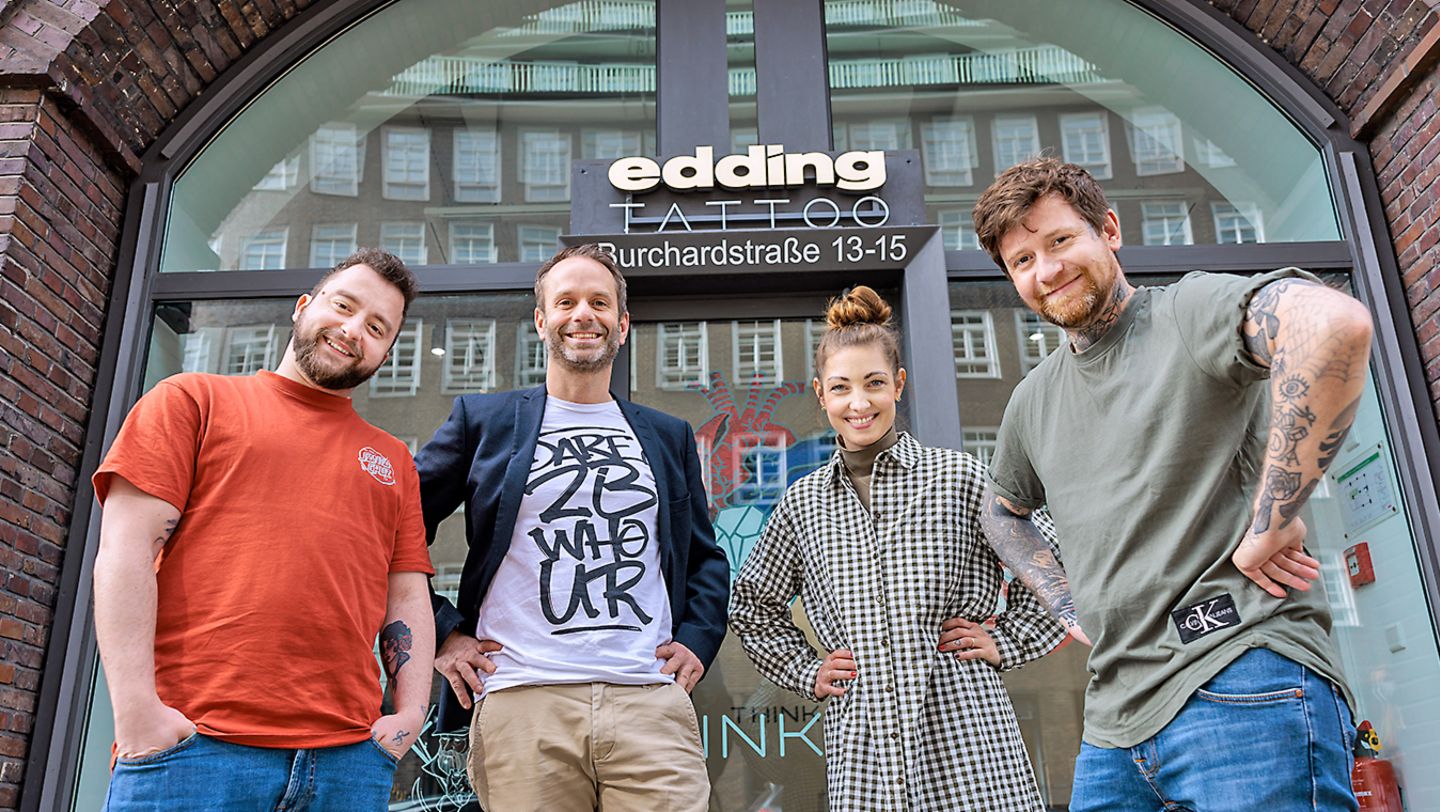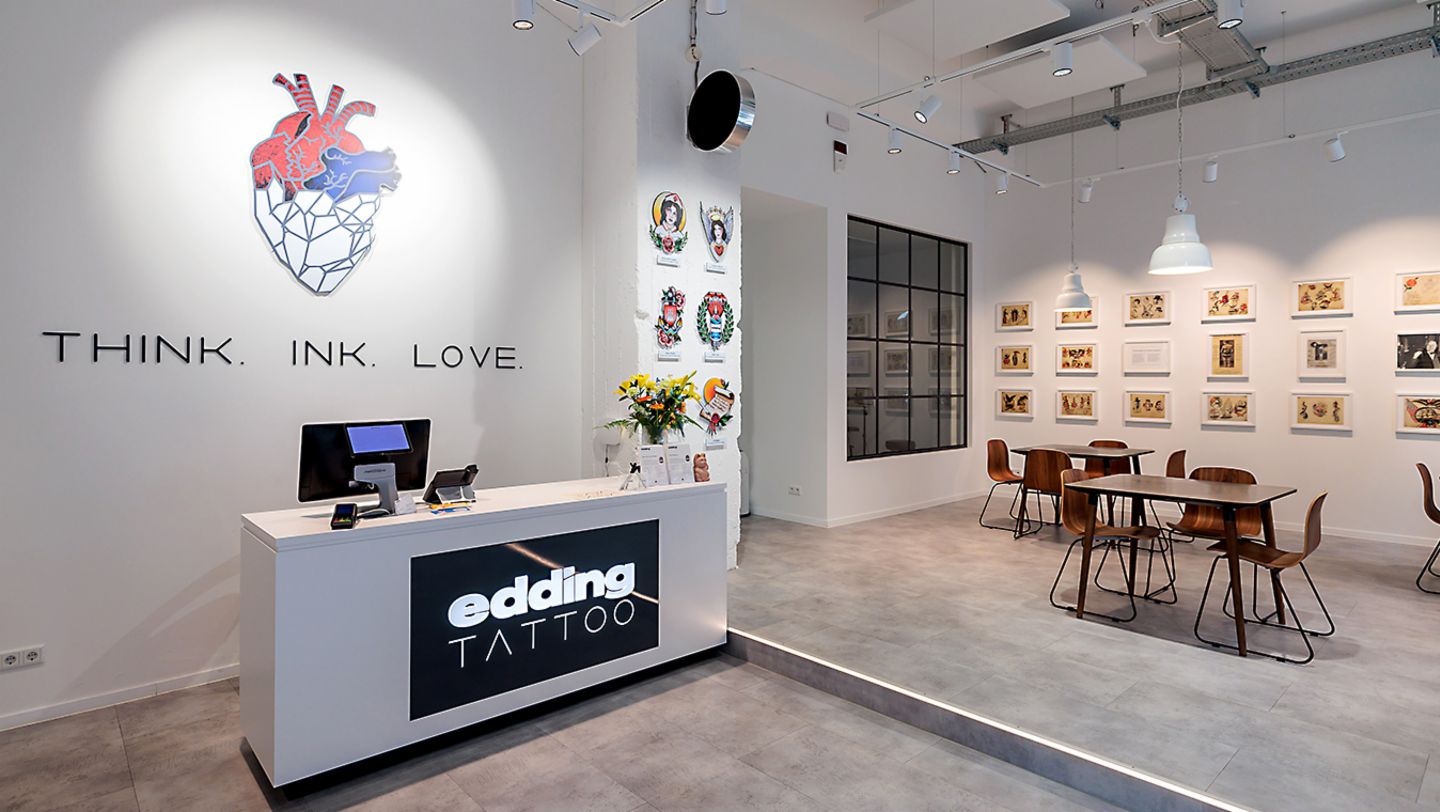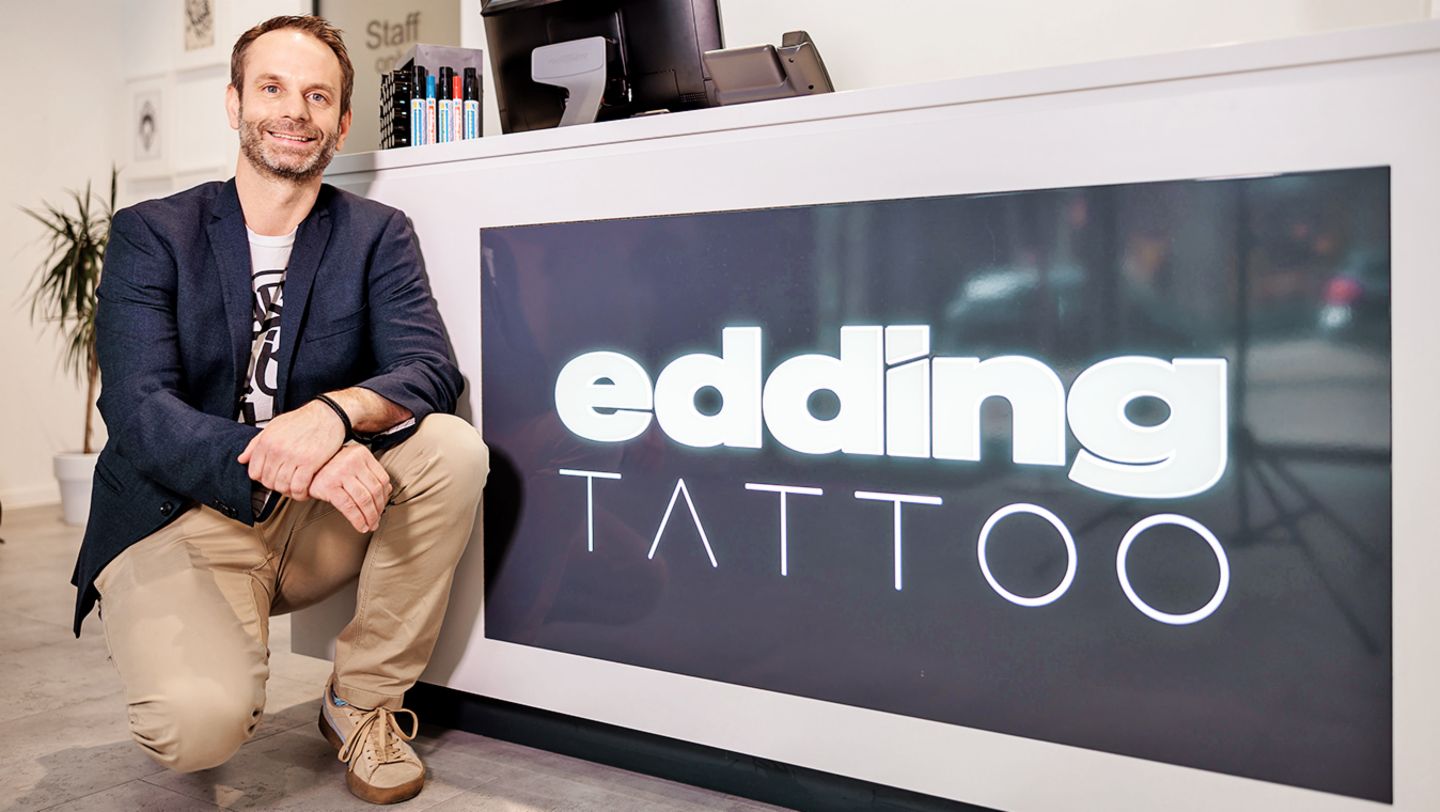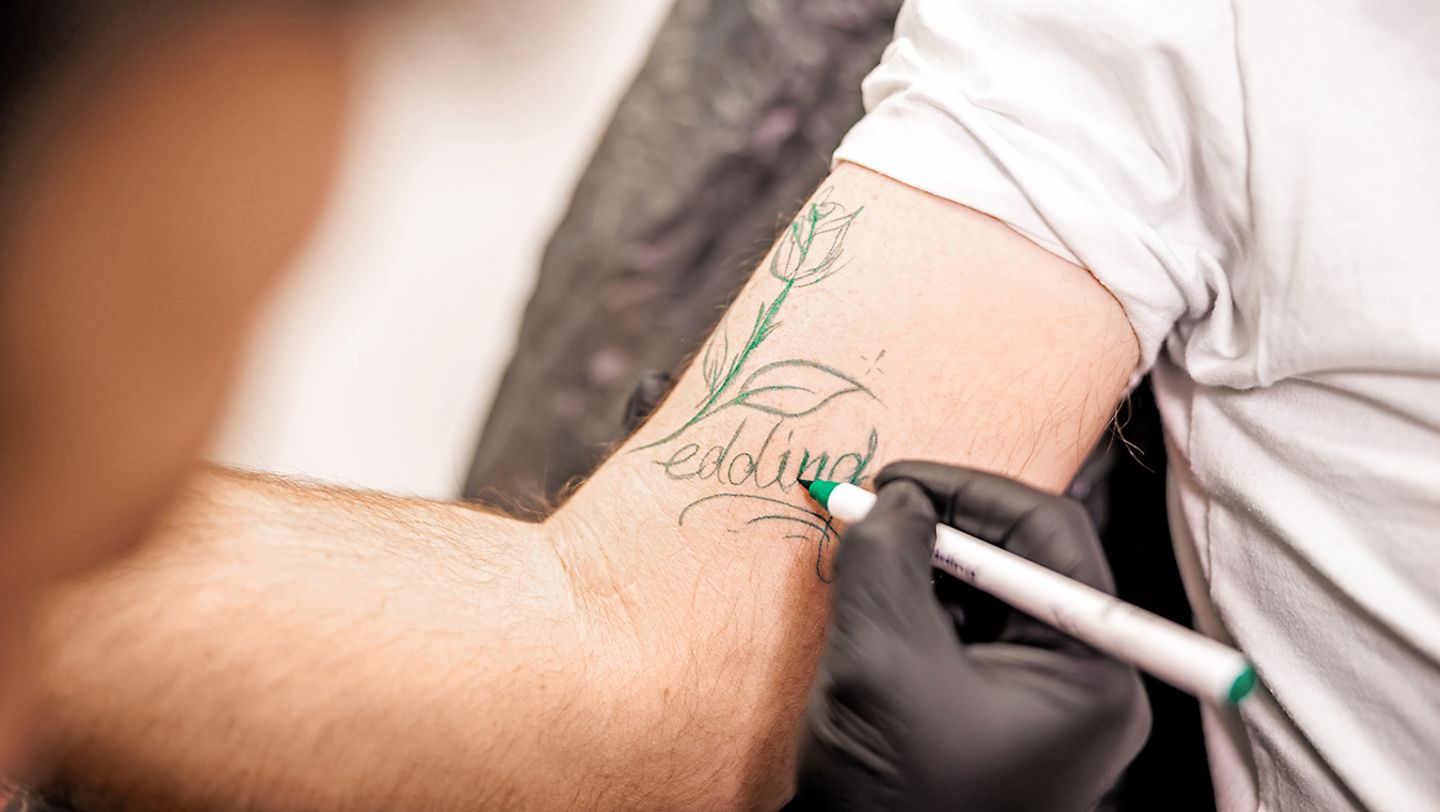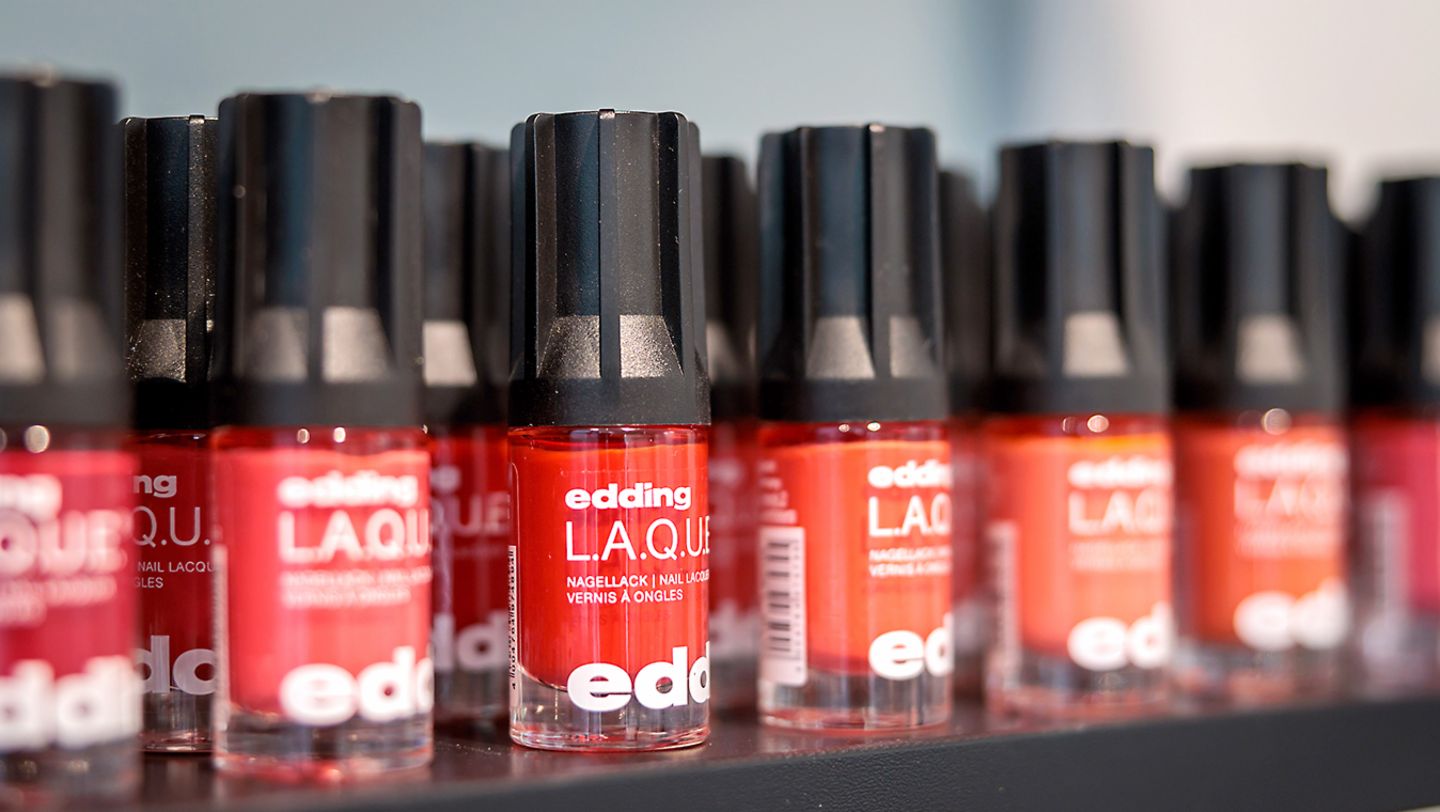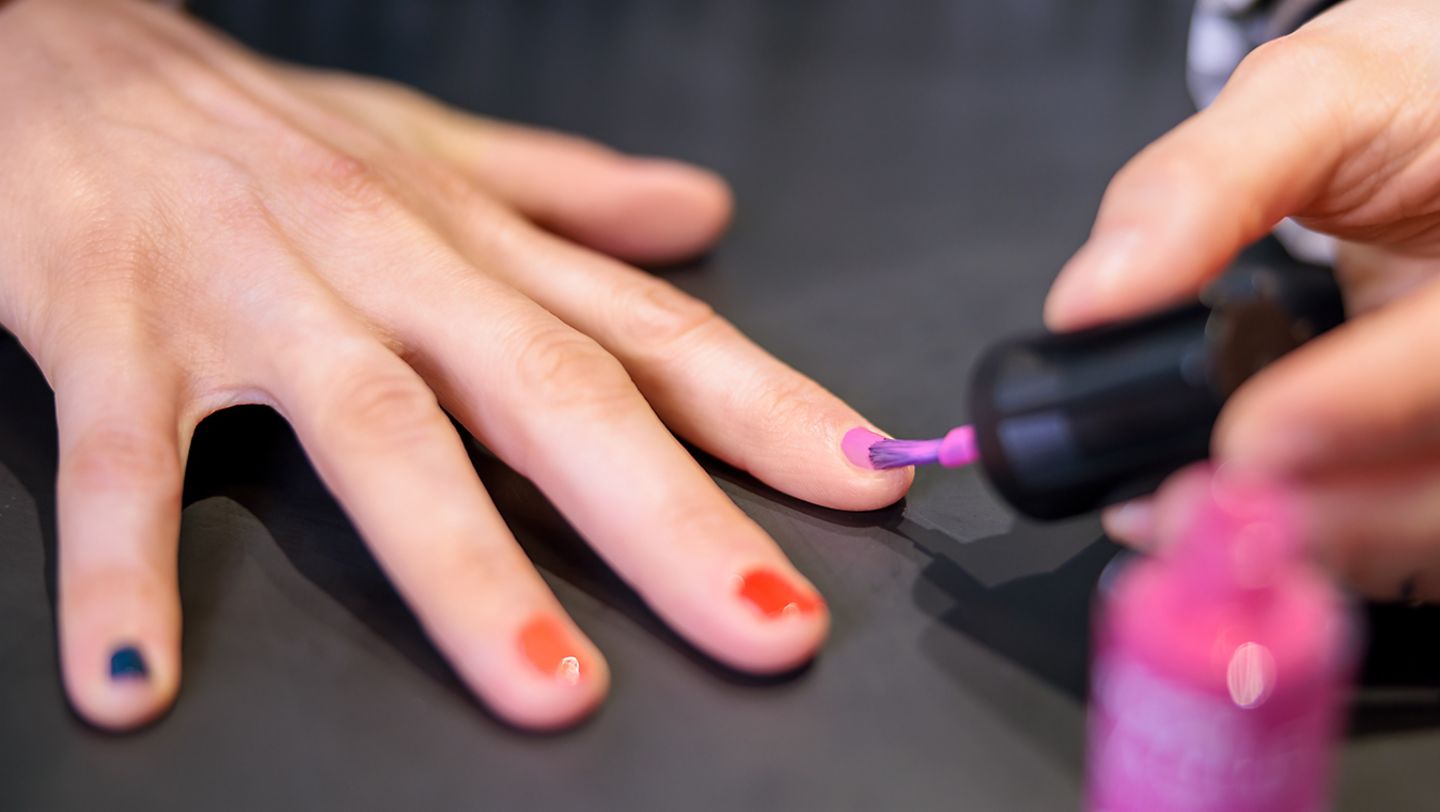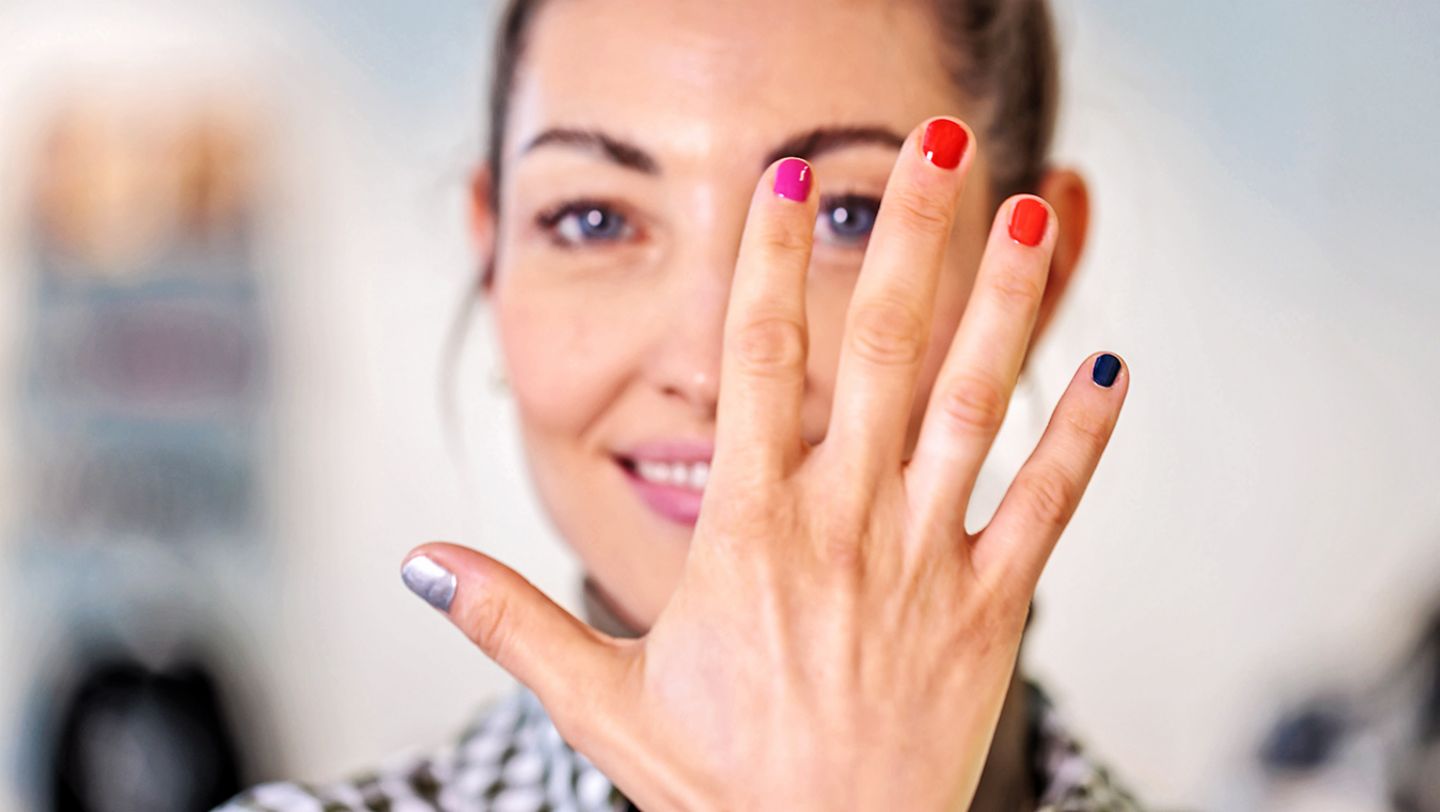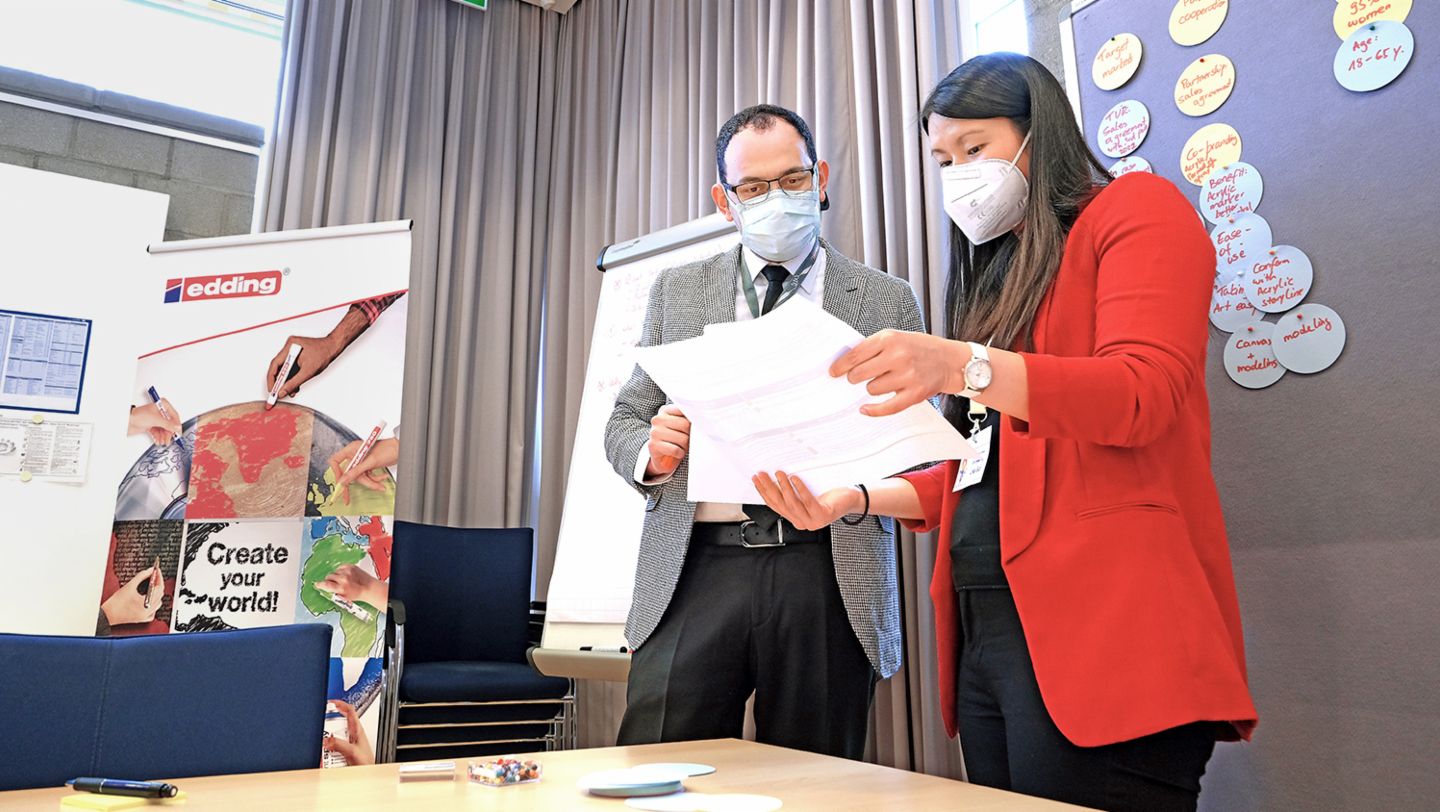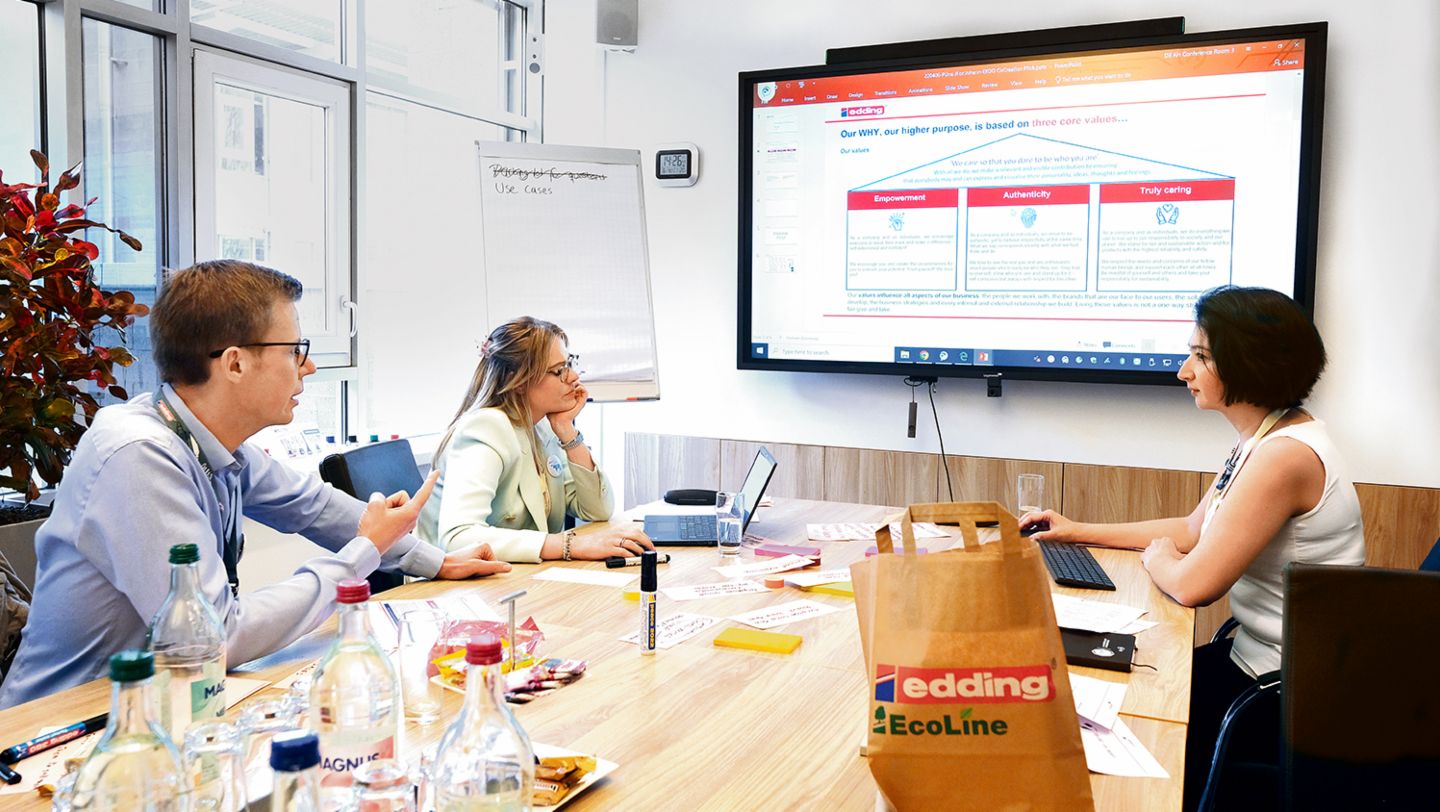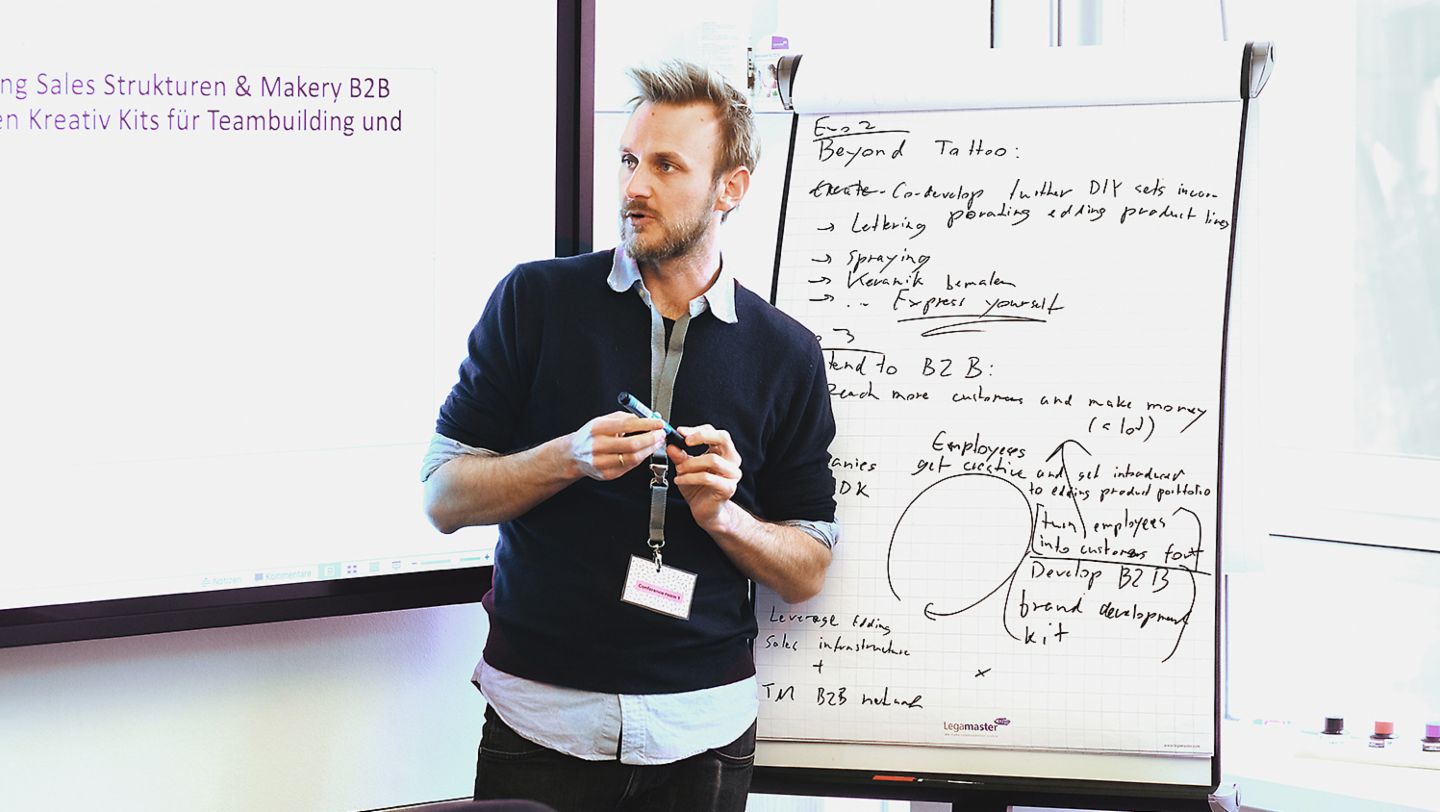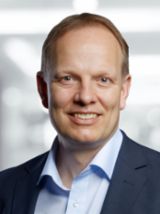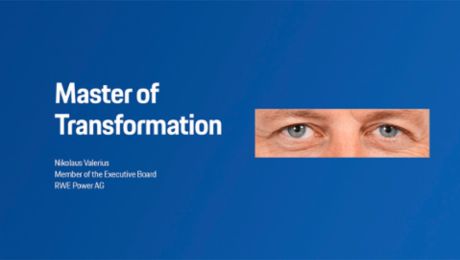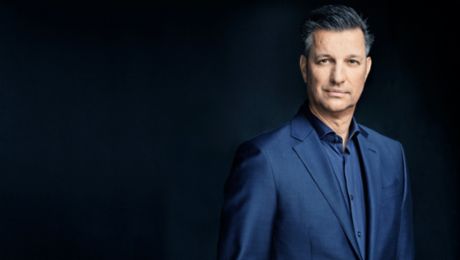Board members should be role models for their employees—meaning as authentic, flexible, and persuasive as possible. But does that mean they should immediately get themselves tattooed? CEO Per Ledermann, born in 1975, did exactly that with his own ink in the service of transformation. His company’s new course was launched on his left upper arm.
But let’s start at the beginning. When the Edding company was founded in 1960 by two young entrepreneurs with the minimum starting capital of 500 German marks (about 260 euros), no one could have foreseen that the name “Edding” would soon become synonymous in Germany and abroad with high-quality felt-tip pens. It would sell around 100 million of them in its first ten years—today that figure is approximately 150 million annually.
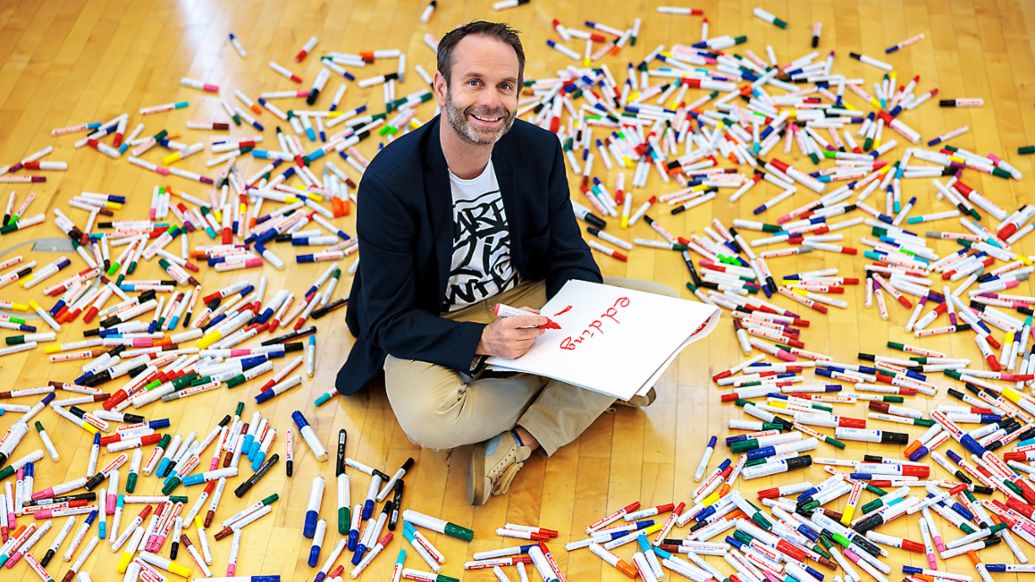
“Permanent marker” is the generic term for these conspicuously wide-tipped pens. They were originally used by professionals at warehousing, logistics, and shipping firms to mark packages quickly and clearly. Then they were discovered by artists, drafters, marketing agencies, and private individuals. And for decades they were a fixture at lectures, seminars, and workshops for purposes such as writing on flip charts. In short, they had a broad market with a secure demand.
The logistics sector now needs far fewer Edding markers. And the colorful presentation cases of workshop organizers are an increasingly rare sight. Like almost everywhere else, here too the future is digital. The trend toward paperless communication could very well eliminate the need for writing utensils. In 2020, the market for office supplies already dropped by 25 percent. This downward trajectory is continuing, not least of all because companies are forgoing paper and pencils for sustainability reasons. This puts Edding AG, which went onto the stock market in 1986, in the midst of a major transformation. It has to reinvent itself and become more versatile.
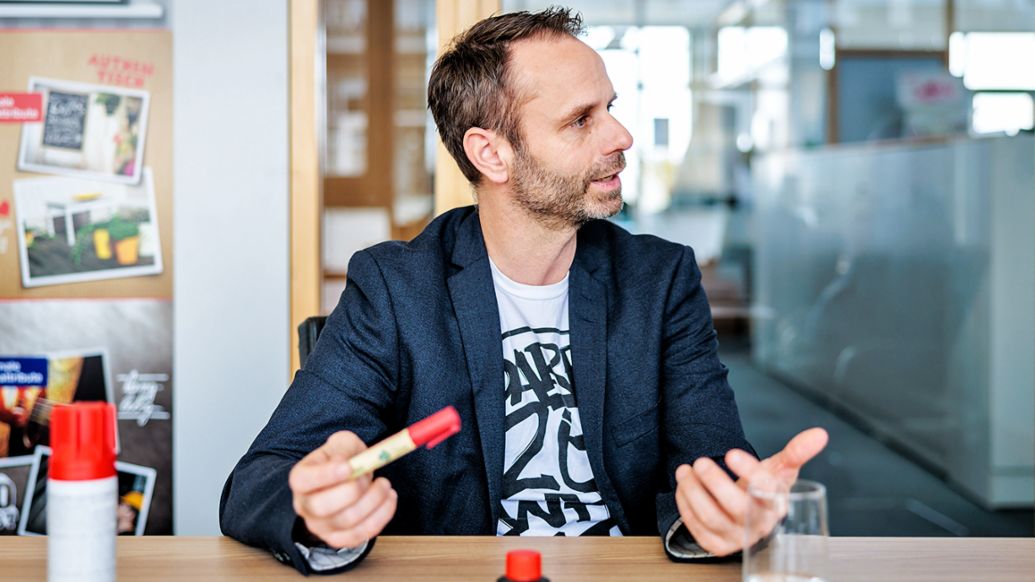
Its course began to change in 2016. That was when the management team led by Per Ledermann, the son of the company’s co-founder, posed the question: “Do we dare to strike out on new paths?” Ledermann asked a young graduate student to conduct interviews in the industry. The student, who was researching disruptive technologies, was charged with determining where and how companies were using Edding markers and what would be replacing them in the future. Her results quickly confirmed the sense that felt-tip pens had hardly any future in standard business or industrial settings. And gave her the material for a doctoral dissertation with the working title The culture of innovation at Edding. She was right on target. After earning her PhD, the former student intern was tapped by Ledermann to lead the newly formed department of corporate innovation management.
The second-generation CEO of Edding takes a clear-eyed view of the situation: “We’re facing enormous change. Markers will hardly be needed anymore, aside from a few for design thinking. We’ve also moved beyond simply applying color to surfaces.” But Ledermann sees the inherent value in his company’s decades of experience. “Our products have always been about helping people express themselves—which also and crucially means the freedom of expression.” Communication knows many channels, including unconventional ones. Which is how tattoos entered the picture in 2020 as an especially striking innovation.
As Ledermann recalls, “We had already developed the idea back in 2009 when our management committee was meeting for strategy nights over pizza and beer, but we didn’t pursue it.” Perhaps the impromptu notion was ahead of its time. And Edding was probably not ready for it. At any rate, the idea lay dormant for a good five years—until Ledermann took it up again following renewed mention by a friend and proceeded to cause a sensation at the company headquarters in Ahrensburg, northeast of Hamburg. He pulled out all the stops, approving a “seven-digit figure” for the initial budget, ordering inks to be developed in accordance with the latest E.U. guidelines, hiring five tattoo artists in 2020, and opening the company’s first tattoo studio in the historical Chilehaus building in Hamburg’s upscale city center. And he got his own first tattoo, a heretofore unusual action by Ledermann family members except for the director’s nephews. “If we’re entering new territory, then I have to go there too,” says the CEO, who can now also imagine opening studios in other large cities.
The new business model was not entirely without detractors—as might be expected when an established manufacturer shifts to providing a service. “The tattoo community was skeptical at first, because a large company was moving into its small-scale market.” The workforce at Edding also had some reservations. “Our long-standing ensemble had been playing flawlessly together for years and suddenly had to deal with a different kind of music,” remarks Ledermann. “That was a source of unease and critique—like a wild rock band crashing the concert of a philharmonic orchestra.”
But Per Ledermann, whom some of the older employees had known since his childhood as the son of the founder, appealed directly to the people at the company. Small three- and four-member project teams were created and he joined them too. “I got personally involved in an effort to build the bridges we needed to pivot from a rather hierarchical organization to an agile one.”
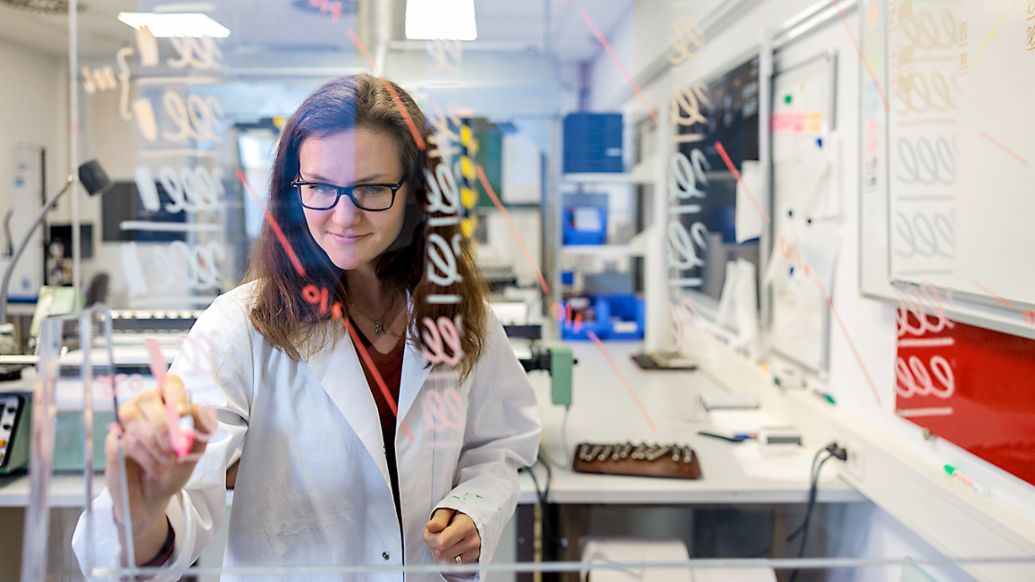
Actually implementing the transformation was of course not quite as simple as it might sound. Ledermann is very open and self-critical on this score. “Despite being on a number of different teams I realized I still wasn’t visible enough. So I starting holding one-on-one talks in order to learn from people. But also to do some convincing.” The employees could see how serious their boss was about the transformation. For his part, Ledermann realized that “we had burdened ourselves with too many areas of innovation. The gap between management and the team was too big. Sometimes I was hell-bent on getting my way. At other times I shied away from conflict.”
Good communication can be an important part of making a transformation work. One employee launched a series of informal evening get-togethers over wine called the “Strategy Spirits.” Gatherings outside the normal routine made it easier to chart a new course and ensure everyone was on board. Tattoo inks alone, of course, would not be enough for the company to survive, let alone grow. But Edding has remained true to its colors, albeit in novel ways. Its portfolio now even includes nail polish, whose primary buyers are large drugstore chains.
In addition to cosmetics, Edding is continuing to target its long-standing clientele in other businesses and industries. Now, however, the products it provides for professional applications are digital. The “Edding code” technology, for example, uses conductive digital inks to detect forgeries of documents such as driver’s licenses and to electronically verify brand-name products. In producing innovations of this type, the north German company has been working closely together with start-ups, which it invites in different combinations to discussion sessions at its headquarters.
One of these young companies is Prismade, which invented the digital ink used at Edding. In 2018, Edding acquired a 50 percent share of it. To handle the development and international sales of innovative digital technologies, Edding founded a business unit in Munich called Industrial Tech Solutions. Its portfolio includes the Edding compact printer, a small labeling device—made in Germany—for industrial production processes. As Ledermann explains, “It’s essentially a digital and fully connected 4.0 version of a classic Edding product.” Which takes the specialist in permanent markers almost back to its roots. However, that’s not the end of the transformation for this world-famous maker of writing instruments. Ledermann, who runs a nature reserve in Namibia with his family while on vacation, is especially clear on this point: “In many respects we’re still right in the middle of the process of change.”
One thing that definitely should not change, however, is the company’s identification with its history. When the interview is nearly over, Ledermann, in keeping with his role as head of a family-run company, puls a black “edding no. 1” marker out of his pocket. He twists off the cap with two fingers in lightning speed, and writes the company’s name on a piece of paper. Although six decades old, the original product still works perfectly. “Our very first marker was refillable,” says the boss—who upholds the tradition of writing the company name in small letters but attaching great importance to sustainability.
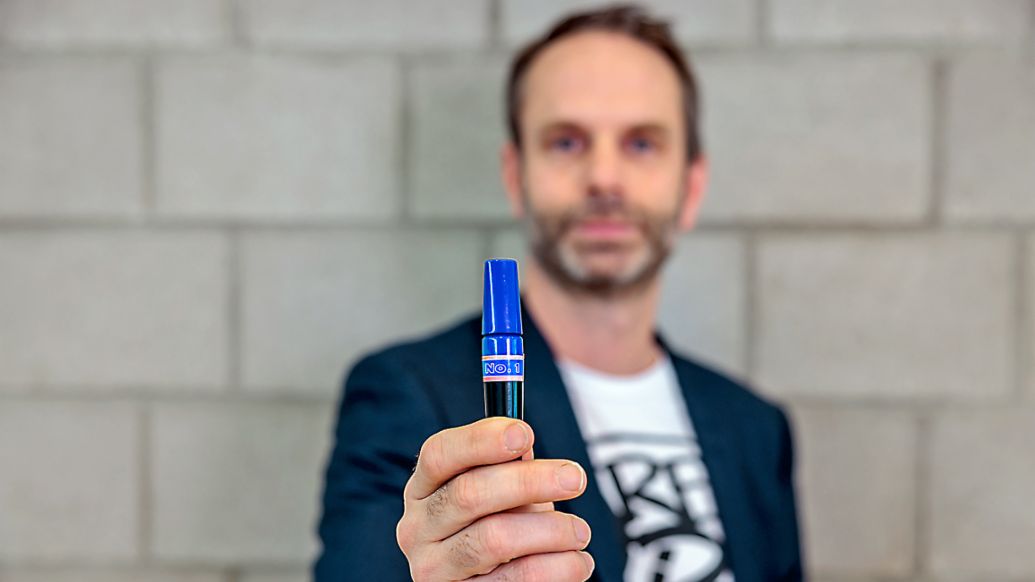
From Basement to Bourse
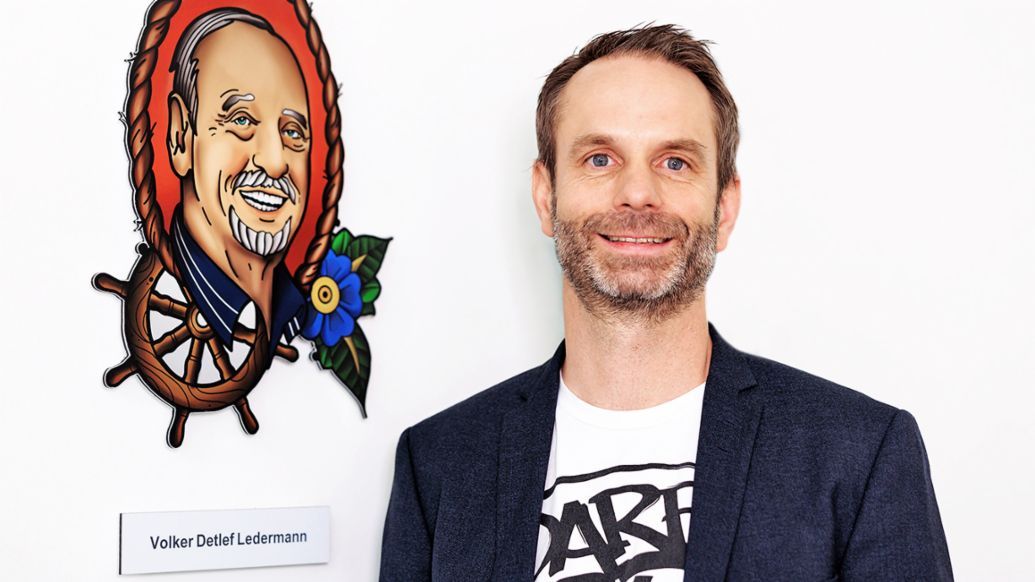
Edding, a family-run company, was founded in a basement office in Hamburg in 1960 by school friends Carl-Wilhelm Edding and Volker Detlef Ledermann. In 1986, co-founder Edding retired and sold his shares. The transaction was financed by the company’s launch on the stock market, with the Ledermann family retaining the majority of shares. The ordinary shares are in family hands, with only non-voting preference shares on the market. In 2005, Per Ledermann succeeded his co-founder father, starting off as the board member in charge of finances for what had become an international enterprise headquartered in Ahrensburg, northeast of Hamburg. In 2021, Edding posted group sales of 148.6 million euros and employed around 700 people.
The company’s brand names—Edding, Legamaster, and Playroom—stand for high-quality products and solutions for both private and professional needs. Made famous by its permanent markers, the portfolio includes pens and other writing utensils for use in homes, offices, and medical and industrial settings. It features products designed to put creative ideas into practice, including tattoo ink and nail polish. It now also offers innovative digital applications. Legamaster develops and distributes visual communication tools, from classic products like flip charts and whiteboards to electronic solutions such as interactive e-screens. The Playroom brand, which joined the Edding group in 2021, represents innovative concepts and services that promote a “new work” culture of innovation at companies and organizations.
Between Boardroom and Zebra Farm
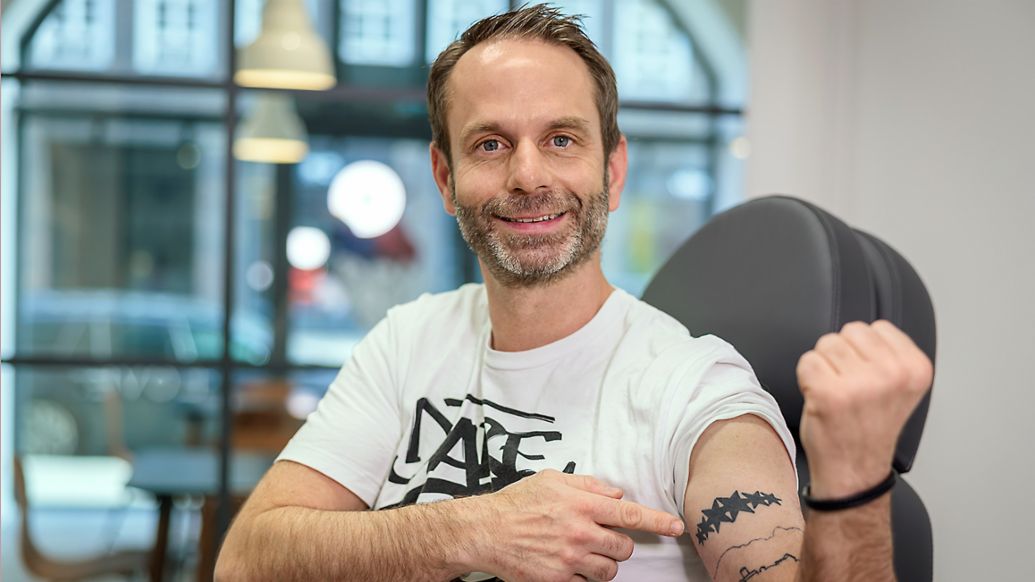
Born in 1975, Per Ledermann joined the board of Edding as its CFO in 2005 and then became CEO of Edding AG in 2009. At the age of 15, the son of the company co-founder had played with the idea of running the family business one day. Based on an initial desire for academic work, he studied law before turning to business administration. His multitasking skills and ability to find creative solutions were evident early on. At age 20 he and his wife Anika welcomed their son Yannick and daughter Elisa. There was never any doubt that the couple would keep studying while parenting, and they now have four children.
After Ledermann passed his first state law exam, the young family spent two years in the USA. There he earned master’s degrees in business administration and international management. The family then moved to the Middle East, where Ledermann worked as a strategy consultant before entering and taking over the company his father, Volker Detlef Ledermann, had co-founded. Ledermann inherited a great desire to travel and a strong connection to nature and animals from his parents.
Africa plays a special role here. Susanne and Volker Detlef Ledermann fell in love with the continent’s beauty and worked to save Hartmann mountain zebras from extinction. A love for Africa is also evident on Per Ledermann’s left upper arm, where a tattoo shows a relief of the wildlife preserve that the family runs in Namibia.
Edding Branches Out—Five Questions about Its Transformation
1 When was it clear that Edding’s fiber-tip pens could no longer power the business model and the company would have to change?
Per Ledermann: The foundation was laid by a study we conducted back in 2012 with 25 leaders in the office product, writing tool, and retail sectors. Its aim was to analyze how the market would change by 2020. And its conclusion, which predicted the market would drop by a third, left us in shock. The reasons had to do not only with digitalization, which was making key applications obsolete, but also with commoditization, which meant ever more brand names were generating ever greater price pressures. That was what prompted us to start changing the company in major ways.
2 What were the first steps in Edding’s process of transformation?
Ledermann: A key part of the transformation process consisted of looking outside the company and asking what exactly was happening on the market. And then of evaluating how much risk was involved. That’s how we came across new opportunities. One of the crucial initial steps was to focus much more on our target group of end consumers. Our first new product—acrylic sprays—managed to achieve surprising success. They were about helping people unleash their creativity at home. In addition to the product itself, we wanted to inspire design in both retail and online contexts. Our message concentrated on the courage to try out new ideas. That’s something every one of us can do. At some point the strategy really took off. In the beginning we were expecting annual sales of 300,000 euros, but we’ve now reached a mid-level seven-digit figure. That really charged our attitude toward change. We’ve been building on that with the next projects—which are even more adventurous.
3 How did the employees respond to change?
Ledermann: To be honest, when the idea arose of adding new product areas to our traditional collection, it wasn’t met with total agreement. Everyone at the company was fully occupied with their own fields of work. We first had to form a special project team that wanted to work on developing new product innovations. At some point the products were born and became part of our creativity-focused portfolio. That ultimately evolved into a pattern. When you’re facing major processes of change you need encouragement, and our acrylic spray paints for artistic design have definitely done the job. They worked superbly, and gave us the confidence to keep going. In the meantime we’ve come up with many more innovative products, such as nail polish, acrylic markers, and tattoo inks. An essential part of transformation isn’t just the products themselves, but rather what happens with the people when a company sets off on a new course—the very fact that we’re daring to try out new things. It’s important, however, not to neglect our existing business. It continues to keep us afloat and also has to finance our new ideas.
4 What are you doing about sustainability—will we be seeing fully biodegradable markers?
Ledermann: Sustainability is always a huge priority for us. We’re constantly seeking ways to make our products more sustainable. Our markers have always been refillable. We also provide our business customers with return boxes so they can send back empty markers, which we then disassemble and recycle. As for broadening our horizons further, we have to expand the company’s expertise. The complex part is usually a matter of bringing the right products together, and especially of raising awareness for them. The challenge behind biodegradable markers lies in the different components and in the system itself, which has to be sealed—in contrast to ballpoint pens. Biodegradable materials generally have fibers that are permeable in some way. As soon as the solvent makes its way through the material, the pen dries out. However, a few years ago we began developing our first inks based on natural pigments. And as far as plastics go, we’ve reached the stage where we can work with ever more mixed plastics. There’s still a long road ahead before the pens are biodegradable, but we’re progressing step by step—I’ll probably still need to be patient for a few years.
5 To ask the “quo vadis” question, what course will Edding be taking in the future, and what innovations will we be seeing?
Ledermann: The big topic of the future has to do with collaboration and work. We’re already starting to take a more holistic view of how collaboration functions, and want to keep moving in this direction. If you look at visual communications over the past two years, it’s especially clear that the transformation has to go faster. We’ve just set up a conference center—what we call a Playroom—for a customer in Dubai, which uses digital technologies to show innovation processes spatially. Depending on what customers need, we look at which hardware and software can be helpful and equip the place accordingly. Lots of new ideas are arising in the collaboration and work field right now, also outside Edding. It’s our job to find the right partnerships and joint projects. Our goal at Edding is to provide customers with overall solutions from a single source. There are also a lot of cool innovations and ideas in the traditional creativity sector. One of our employees recently returned from a business trip to the Netherlands, where he had seen how you can design colorful things in water, like works of art. I don’t know whether we’d ever be able to do something like that. But it triggers a sort of “truffle pig” mentality in us, with a desire to put the next innovative product idea into motion.
Info
Text first published in Porsche Consulting Magazine.
